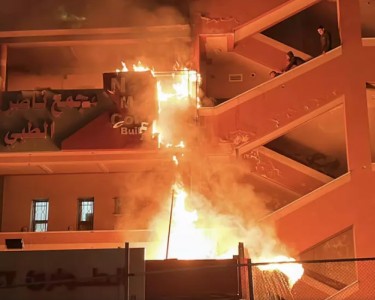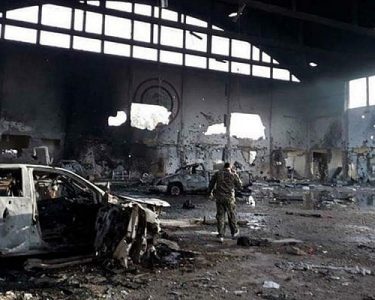PYONGYANG, Sept 7. (NNN-AGENCIES) – North Korea is enhancing its nuclear weapons and missile programmes while evading sanctions, UN experts said on Friday, following a series of recent test-launches that have been downplayed by US President Donald Trump.
The reclusive regime declared a moratorium on nuclear testing and long-range missile launches, and last year said its Punggye-ri atomic bomb test site would be dismantled. Those steps coincided with a huge personal push by Mr Trump to get North Korean leader Kim Jong-un to give up his nuclear arsenal.
But the UN report said that despite the declarations of intent during the US’s fledgling diplomatic effort, the North’s development of atomic warheads had not stopped.
“The nuclear programme of the Democratic People’s Republic of Korea continues to operate, notwithstanding the absence of nuclear testing and the closure of the test site at Punggye-ri,” the experts said.
The US Mission to the United Nations welcomed the report and said it showed the need for “continued vigilance on sanctions evasion”.
Mr Trump first held talks with Mr Kim at a summit in Singapore last year. A second summit in Hanoi in February collapsed abruptly without an agreement.
Yet it was followed in June by a surprise meeting between the two leaders when Mr Trump stepped out of the Demilitarised Zone (DMZ) that divides the two Koreas, crossing into the North, where he shook hands with Mr Kim.
The choreographed photo opportunity has not papered over cracks. The US has said it wants complete denuclearisation – a concession that analysts believe will never be forthcoming – to safeguard the Korean peninsula. The North wants immediate sanctions relief, which American officials insist would only follow after verification of denuclearisation.
The rival bargaining positions have seen preparatory talks between the two nations about a third summit gridlocked for months. The North has also lashed out repeatedly at Mike Pompeo, Mr Trump’s secretary of state, warning last week that its expectations for nuclear negotiations with Washington were “disappearing”.
One of the sticking points at the failed Hanoi summit was the future of North Korea’s decades-old Yongbyon nuclear complex, which has long been at the heart of its atomic programme. Yet it remains shrouded in secrecy.
One UN member state “assessed that the Yongbyon uranium enrichment facility continues to operate” between early February and early August, according to the report.
In that period there was no sign Yongbyon’s main reactor had been operated, it added, but “the construction of the light-water reactor continues” while “occasional activity was observed at the radiochemical laboratory”, possibly for maintenance.
Mr Trump often points to the absence of the North’s nuclear testing and long-range missile firing since late 2017 as one of his diplomatic achievements.
But North Korea has launched multiple rounds of short-range missile tests in recent weeks – actions the US president has described as “standard”, saying he has “no problem” with them. But other countries do.
Britain, France and Germany issued joint statements last week and on August 1 condemning the ballistic missile launches as breaches of UN sanctions, urging the North to engage in “meaningful negotiations” with the US on eliminating its nuclear weapons.
With its recent tests, North Korea has demonstrated it can “master key components of ballistic missile systems, including solid-rocket fuel production… and the capacity to penetrate ballistic missile defence systems”, the UN report said.
North Korea is under heavy US and UN sanctions over its nuclear programme.
The UN panel said it had received assessments from member states indicating that Pyongyang had breached an annual cap of 500,000 barrels of refined petroleum through “unabated” ship-to-ship transfers in the first four months of this year. The North is also evading sanctions to import luxury goods and using cyber warfare to gain access to funds including cryptocurrencies to pay for the development of its nuclear programme.
NNN-AGENCIES






